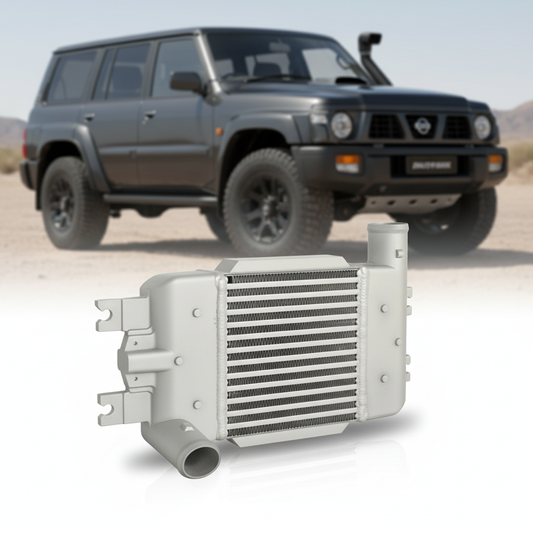Have you ever wondered how hybrid vehicles work? How do they combine gasoline and electricity to provide a more efficient, smoother, and eco-friendly driving experience? Today, we’re peeling back the layers on hybrid cars, revealing their inner workings, core components, and why they are quickly becoming the stars of the future of transportation.
Power Pairing: The Perfect Partnership Between Gas Engines and Electric Motors
At the heart of hybrid vehicles are two key components: the traditional gasoline engine and the efficient electric motor. Together, they don't just enhance vehicle performance—they also optimize fuel efficiency.
-
Gasoline Engine: Think of the gasoline engine as the hybrid car’s "muscle," providing plenty of power, especially during high-speed driving. Compared to traditional cars, hybrid gasoline engines are often smaller and more efficient, delivering both strong performance and reduced fuel consumption
-
Electric Motor: The electric motor acts as a gentle "assistant" to the gasoline engine, primarily functioning during low-speed driving or when the vehicle starts. In some hybrid cars, the electric motor can even run the vehicle on its own, reducing reliance on the gasoline engine

Batteries: The Heart of the Hybrid Vehicle
Batteries play a crucial role in hybrid vehicles. They provide the necessary power for the electric motor, ensuring that energy is readily available when the vehicle needs it. Not only do these batteries supply energy, but through regenerative braking, they recharge during braking, capturing energy that would otherwise be lost. This is why hybrid vehicles are so energy-efficient—every time you brake, the vehicle is recharging!
Seamless Collaboration: How Power Transitions Happen Smoothly
The brilliance of hybrid cars lies in their intelligent control systems. The regenerative braking system recovers energy during braking, helping charge the battery and improve overall fuel efficiency. Every time you brake, the wheels’ motion is converted into energy that powers the vehicle’s battery
Common Issues and Solutions
While hybrid vehicles are sophisticated and reliable, they can face certain issues. Don't worry—most of these problems can be addressed with regular maintenance or some simple checks.
-
Battery Not Charging?
Symptoms: The battery light turns on, or the battery doesn’t charge properly or takes too long to charge.
Solution: Check the battery charging port for obstructions or dirt. If the battery has aged, it may need replacing. Also, check the Battery Management System (BMS) to ensure it is functioning properly. -
Electric Motor Not Responding?
Symptoms: Slow or no response from the electric motor, with poor acceleration.
Solution: First, check if the battery has sufficient charge. If the battery is fine but the motor still isn’t working properly, it could be an issue with the motor control system, which requires a professional checkup. -
Gasoline Engine Won’t Start or Power is Low?
Symptoms: Difficulty starting the engine, or a noticeable drop in engine power, accompanied by a warning light.
Solution: Check if the engine oil needs changing or if the air filter is clogged. Regular maintenance can prevent the engine from aging prematurely, ensuring a smooth power delivery.
-
Braking Issues or Inconsistent Performance?
Symptoms: Unstable braking or reduced braking effectiveness, possibly with strange noises.
Solution: Inspect the braking system, especially the regenerative braking system. If there’s an issue with the regeneration process, it can affect brake performance, and it needs professional servicing.
Installation Considerations for Hybrid Vehicle Components
When installing key hybrid vehicle components, extra care is required to ensure everything runs smoothly and safely. Here are some important installation tips:
-
Battery Installation: The battery is one of the most important parts of a hybrid vehicle. Make sure the battery is securely connected to the car's electrical system. Avoid external factors like extreme heat or humidity that could affect its performance. Be mindful to prevent electrical short circuits during installation.
-
Electric Motor Installation: The electric motor must be properly aligned with the vehicle's powertrain system. Ensure the motor is securely mounted and that all wiring connections are tight to prevent issues like motor failure due to vibration.
-
Engine System Installation: The gasoline engine installation should ensure that all components (fuel system, electrical connections, and cooling system) are properly set up. It's also important to sync the control systems for both the gasoline engine and electric motor for smooth operation.
Quality Check: How to Identify the Quality of Hybrid Vehicle Components
When choosing a hybrid vehicle, the quality of its components is key to ensuring long-term performance. High-quality components ensure that the vehicle runs smoothly, efficiently, and lasts longer.
-
Batteries: A good battery typically has a long lifespan and a fast charging rate. Check the brand reputation, warranty periods, and user reviews to gauge the quality of the battery.

-
Electric and Gasoline Motors: A high-quality motor should operate smoothly, with minimal noise, and provide good acceleration. The gasoline engine should be powerful yet efficient, producing fewer emissions. Opt for reputable brands and ensure regular servicing to keep both the motor and engine in top shape
Conclusion: Why Hybrid Vehicles Are the Future of Transportation
Hybrid vehicles are rapidly becoming the go-to choice for environmentally-conscious drivers. They reduce fuel consumption, minimize carbon emissions, and offer a smooth driving experience, especially in urban environments where electric motors shine. With the right maintenance and regular checkups, hybrid vehicles can deliver top performance for years, making them an excellent option for anyone looking to save on fuel and reduce their carbon footprint. Whether you’re driven by eco-consciousness or fuel efficiency, hybrid vehicles provide the perfect solution for modern transportation needs.




